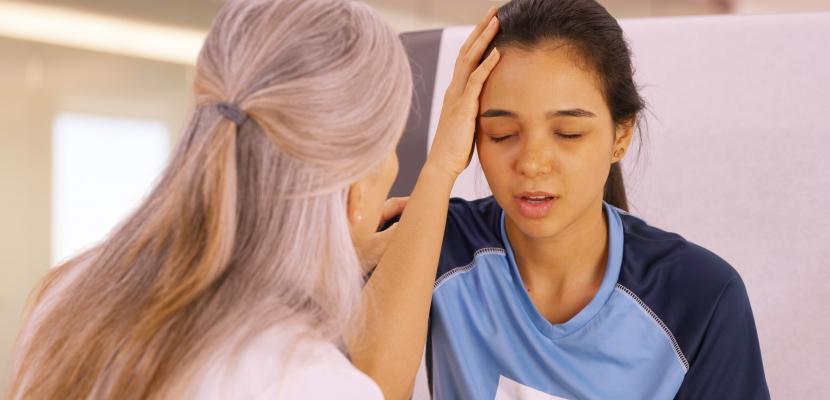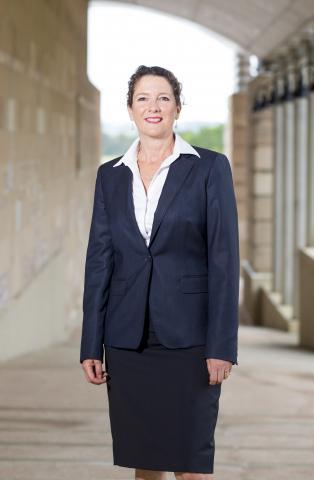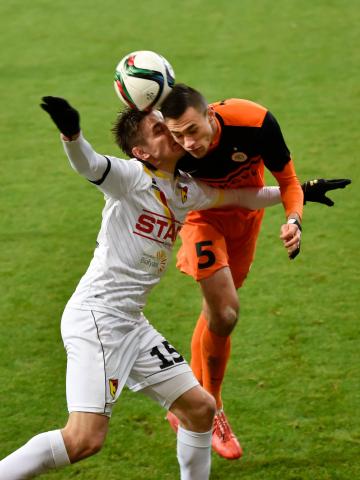
A Senate inquiry into concussions and repeated head trauma in contact sports is due to deliver its findings in September.
The inquiry has examined several things. These include:
- the guidelines and practices contact sports associations and clubs follow in cases of player concussions and repeated head trauma, including practices undermining recovery periods and potential risk disclosure;
- the long-term impacts of concussions and repeated head trauma, including but not limited to mental, physical, social, and professional impacts; and
- the long and short-term support available to players affected by concussion and repeated head trauma.
Bond University Assistant Professor Annette Greenhow teaches in Bond’s Faculty of Law.
Dr Greenhow is a leading authority on the regulation of sports-related concussion and has undertaken over a decade of research in the area.
YOU CAN HEAR AN EXTENDED INTERVIEW WITH DR ANNETTE GREENHOW HERE.
She describes the regulation of concussion in sport as ‘a wicked problem.’
“It is a complex and evolving problem with many interdependencies and stakeholders,” she says. "It has long and potentially expensive ramifications if left unresolved.”

Dr Greenhow says treating concussion in sport as a public health issue rather than a sport administrative one needs to be the starting point for change.
“We need cooperative ways to look at it,” she says.
“This is not just a sporting injury over which sports should have exclusive authority. Sometimes there’s long-tail harm where symptomology might not become known until many years later. And that's where the costs are externalised.”
Dr Greenhow says the recent shift in view of many athletes towards sports concussion has moved the needle.
“Previously, some elite athletes have said, ‘I have full autonomy over my decision-making. This is my body, my brain. I can do what I like with it’. But many have now come full circle on this. They are now saying, ‘Had I actually known what this was all about, maybe I would have changed my view’.”
And just what was known, who knew it, and the extent to which it has been acted upon adds a further layer of complication.
Dr Greenhow does not suggest that Australia will emulate the American litigation experience where allegations of fraudulent concealment by administrators led to a settlement between the NFL and past players who alleged their careers left them victims of degenerative brain conditions.
“I’m not saying Australia will find itself in a similar situation,” she says.
“But the fact is that the potential ramifications of head injury in sport have been on the table for a long time.”
Dr Greenhow says that based on her research findings, the first wave of Australian concussion concerns in the football codes can be traced to the mid 90s. She says the National Health and Medical Research Council (NHRMC) Football Injuries of the Head and Neck Committee made clear recommendations about management and administration of concussion data collection when responding to a run of serious spinal injuries in the four major footballing codes back in the 90’s.
Of note, the NHRMC Committee recommended 'that there should be a national registry of deaths, brain injury with permanent functional disability established to commence data collection during the 1995 season’ and that 'such reporting of prior notification of injury should be the responsibility of each individual code of football. Initial reporting should occur at the completion of each game.’

“Those recommendations may not have been pre-empting a causative link between head trauma and degenerative conditions, but they were pre-empting a need for precaution. And yet here we are now 30 years on with a significant knowledge gap in several areas. Had these early recommendations been followed by the codes, then perhaps we would be better placed today to understand the nature and extent of the harm. My research highlights gaps in the timeline when nothing of substance transpired despite those early recommendations being made.”
Although the NHMRC rescinded its report and medical guidelines in 2004 (it is the usual practice of the NHMRC to rescind after several years on the basis that evidence relied upon to produce guidelines is always evolving), Dr Greenhow still considers the recommendations provide valuable insights into the existence of early concerns.
She hopes the upcoming Senate Inquiry findings will at the very least insist upon a central repository for data and evidence collection, along with other recommendations to ensure that there are no future gaps in Australia’s approach to sports concussion concerns.
She also hopes that a public health lens is applied to concussion in all sports and that a properly designed and resourced nationally consistent framework ensures all Australian participants get access to an optimally safe sports system.
“For that to happen, sports will need to eschew protective self-interest. On concussion-related matters, sports should be seen as stakeholders, and not gatekeepers. Their voice on the issue is important and should obviously be welcome, but there is enough significant medical evidence available to us now to encourage us to let public health experts take the reins of an important and potentially very costly public health issue.”
You can learn more about Dr Annette Greenhow and her work here.